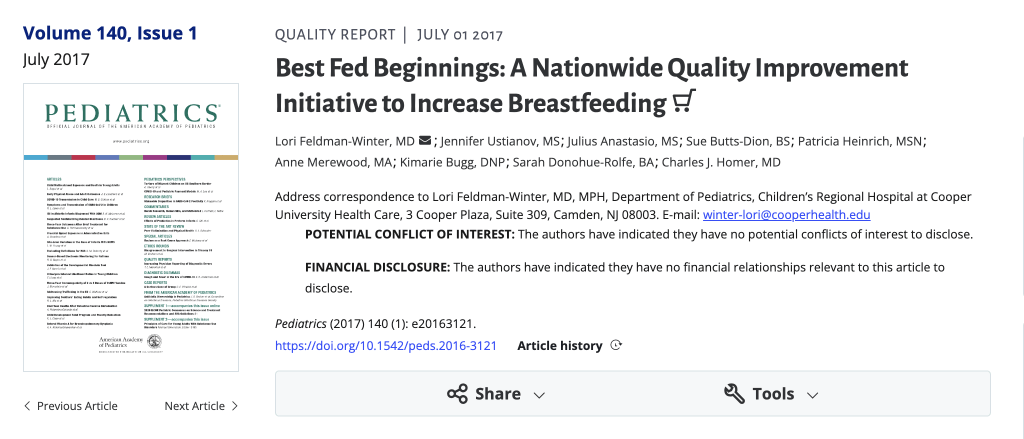Best Fed Beginnings: A Nationwide Quality Improvement Initiative to Increase Breastfeeding
Pediatrics
Abstract
Background and objective
In response to a low number of Baby-Friendly-designated hospitals in the United States, the Centers for Disease Control and Prevention funded the National Institute for Children’s Health Quality to conduct a national quality improvement initiative between 2011 and 2015. The initiative was entitled Best Fed Beginnings and enrolled 90 hospitals in a nationwide initiative to increase breastfeeding and achieve Baby-Friendly designation.
Methods
The intervention period lasted from July 2012 to August 2014. During that period, data on process indicators aligned with the Ten Steps to Successful Breastfeeding and outcome measures (overall and exclusively related to breastfeeding) were collected. In addition, data on the Baby-Friendly designation were collected after the end of the intervention through April 2016. Hospitals assembled multidisciplinary teams that included parent partners and community representatives. Three in-person learning sessions were interspersed with remote learning and tests of change, and a Web-based platform housed resources and data for widespread sharing.
Results
By April 2016, a total of 72 (80%) of the 90 hospitals received the Baby-Friendly designation, nearly doubling the number of designated hospitals in the United States. Participation in the Best Fed Beginnings initiative had significantly high correlation with designation compared with hospital applicants not in the program (Pearson’s r [235]: 0.80; P < .01). Overall breastfeeding increased from 79% to 83% (t = 1.93; P = .057), and exclusive breastfeeding increased from 39% to 61% (t = 9.72; P < .001).
Conclusions
A nationwide initiative of maternity care hospitals accomplished rapid transformative changes to achieve Baby-Friendly designation. These changes were accompanied by a significant increase in exclusive breastfeeding.
